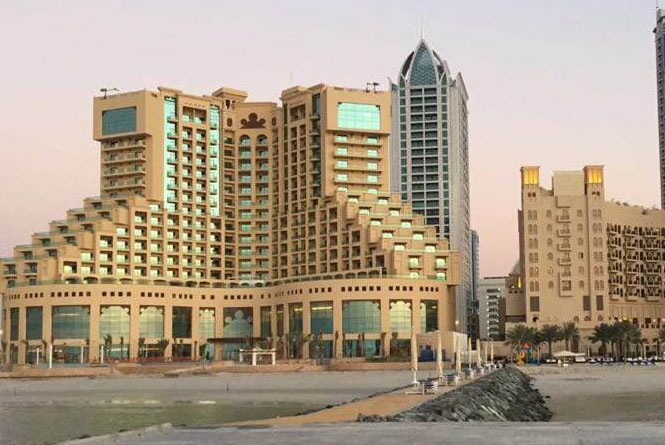The Dubai International Financial Centre (DIFC) has emerged as a premier hub for global businesses seeking to establish a foothold in the Middle East, Africa, and South Asia (MEASA) region. With its robust regulatory framework, tax incentives, and world-class infrastructure, company formation in DIFC offers unparalleled opportunities for entrepreneurs, investors, and multinational corporations. Whether you're launching a startup or expanding an existing enterprise, understanding the intricacies of company formation in DIFC is crucial for leveraging its economic advantages. This article delves into the essential aspects of setting up a business in this dynamic free zone, providing a detailed overview to help you navigate the process efficiently. From legal requirements to operational benefits, we cover the key facets that make company formation in DIFC a strategic move for sustainable growth.

DIFC is not just a financial free zone; it's a thriving ecosystem designed to foster innovation and business excellence. Established in 2004, it operates under its own legal and regulatory system, distinct from the UAE's federal laws, which is based on English common law principles. This unique status makes company formation in DIFC particularly attractive for sectors like finance, technology, and professional services. The centre provides access to a network of over 2,500 active companies and a gateway to markets comprising billions of consumers. By opting for company formation in DIFC, businesses benefit from 100% foreign ownership, no restrictions on capital repatriation, and zero income tax for up to 50 years. Additionally, DIFC's proximity to key global markets and its state-of-the-art facilities enhance its appeal, making it a top choice for companies aiming to scale internationally. The process of company formation in DIFC is streamlined to support rapid market entry, ensuring that businesses can focus on growth rather than bureaucratic hurdles.
One of the standout features of company formation in DIFC is the comprehensive legal environment governed by the DIFC Authority and the Dubai Financial Services Authority (DFSA). This framework ensures transparency, security, and compliance with international standards, which is vital for building investor confidence. The DFSA regulates financial services activities, while the DIFC Registrar of Companies oversees non-financial entities. For company formation in DIFC, businesses must adhere to specific legal structures, such as limited liability companies (LLCs), branches of foreign companies, or partnerships, each with its own set of requirements. For instance, a DIFC LLC requires at least one shareholder and a director, and it must maintain a registered office within the centre. The legal process for company formation in DIFC includes submitting detailed documents, such as a business plan, passport copies, and proof of address, to the Registrar. Moreover, anti-money laundering (AML) and know-your-customer (KYC) regulations are strictly enforced, underscoring DIFC's commitment to a secure business environment. This robust legal backbone simplifies company formation in DIFC while mitigating risks associated with corporate operations.
The process of company formation in DIFC is methodical and designed to be efficient, typically taking 2-4 weeks to complete. It begins with selecting an appropriate business activity and legal structure, which must align with DIFC's permitted activities list. Next, businesses must reserve a unique trade name through the DIFC portal, ensuring it complies with naming conventions. Then, the submission of the application package to the DIFC Registrar is crucial; this includes the company's constitutive documents, shareholder details, and a description of the proposed activities. Upon approval, the next step in company formation in DIFC involves leasing office space within the centre, as physical presence is mandatory. DIFC offers flexible options, from virtual offices to premium suites, catering to diverse business needs. Following this, the company is incorporated, and licenses are issued, allowing operations to commence. It's advisable to engage with a local consultant or law firm specializing in company formation in DIFC to navigate any complexities, such as regulatory approvals or industry-specific permits. This step-by-step approach ensures a smooth setup, minimizing delays and maximizing operational readiness.
A significant driver for company formation in DIFC is the array of financial advantages, particularly the tax-friendly regime. Companies enjoy zero percent corporate and personal income taxes for up to 50 years, with full exemption from import and export duties. This makes company formation in DIFC highly cost-effective, especially for businesses involved in international trade. Additionally, there are no currency restrictions, allowing for seamless capital movement and profit repatriation. The centre also provides access to double taxation avoidance treaties, further enhancing its appeal for cross-border operations. When considering company formation in DIFC, it's important to account for initial costs, such as registration fees (which start at around $15,000 for a standard LLC) and annual license renewals. However, these are often offset by the long-term savings from tax exemptions and the ability to operate in a stable economic environment. Furthermore, DIFC's integration with global financial markets facilitates easier access to funding and investment opportunities, making company formation in DIFC a financially prudent choice for growth-oriented enterprises.

Choosing the right entity type is a critical aspect of company formation in DIFC, as it impacts liability, governance, and operational flexibility. The most common structures include Limited Liability Companies (LLCs), which are ideal for small to medium enterprises due to their simplicity and limited liability protection. For larger corporations, establishing a branch office of a foreign company is popular, as it allows the parent company to extend its brand without creating a separate legal entity. Another option for company formation in DIFC is the limited partnership, suited for investment funds or joint ventures. Additionally, DIFC introduced the Innovation License for tech startups, promoting entrepreneurship in sectors like fintech and AI. Each entity has specific requirements; for example, an LLC for company formation in DIFC requires a minimum share capital, which varies based on the business activity. Understanding these options ensures that businesses select a structure that aligns with their goals, whether it's raising capital, managing risk, or scaling operations. This diversity in entity types underscores the flexibility of company formation in DIFC, accommodating a wide range of industries and business models.
After completing company formation in DIFC, companies must adhere to ongoing compliance requirements to maintain their legal status. This includes filing annual returns with the DIFC Registrar, renewing licenses, and conducting audits if applicable. The DFSA may impose additional reporting obligations for financial services firms, such as regular financial disclosures and compliance certifications. It's also essential to keep corporate records, like shareholder registers and minutes of meetings, up to date. Failure to comply can result in penalties or license revocation, highlighting the importance of proactive management post-company formation in DIFC. Many businesses hire local corporate service providers to handle these tasks, ensuring they remain in good standing. Moreover, DIFC encourages continuous engagement through networking events and industry forums, which can aid in business development. By staying compliant, companies not only avoid legal issues but also build credibility, which is vital for long-term success in a competitive market like DIFC.
Q1: What are the minimum capital requirements for company formation in DIFC?
A1: The minimum capital requirements for company formation in DIFC depend on the business activity and entity type. For example, a standard limited liability company (LLC) typically requires a minimum share capital of $50,000, but this can vary. It's best to consult the DIFC Registrar or a legal advisor for specific cases.
Q2: How long does the entire process of company formation in DIFC take?
A2: The timeline for company formation in DIFC usually ranges from 2 to 4 weeks, provided all documents are in order. Delays can occur if additional approvals are needed, so working with an experienced consultant can streamline the process.
Q3: Can a foreign-owned company have 100% ownership in DIFC?
A3: Yes, one of the key benefits of company formation in DIFC is that it allows 100% foreign ownership, with no requirement for a local sponsor. This makes it an attractive option for international investors.
Q4: Are there any restrictions on business activities for company formation in DIFC?
A4: DIFC primarily focuses on financial services, professional services, and innovation sectors. While there is a broad range of permitted activities, some may require specific approvals. It's important to check the DIFC permitted activities list during the planning phase of company formation in DIFC.
Q5: What ongoing costs should I expect after company formation in DIFC?
A5: After company formation in DIFC, businesses should budget for annual license renewal fees, office lease costs, and potential audit or compliance service fees. These vary based on the company size and activity but are generally transparent and predictable.
In conclusion, company formation in DIFC offers a strategic pathway for businesses to tap into the MEASA region's potential, backed by a supportive regulatory environment and financial incentives. By understanding the key aspects outlined above, entrepreneurs can make informed decisions and capitalize on the opportunities available. If you're considering expanding your business, company formation in DIFC could be the catalyst for your next growth phase.










Zhuoxin Consulting relies on its Chinese service network and Dubai executive team to provide professional one-stop business services without communication barriers for Chinese companies to enter the Middle East market. Its business covers company establishment and maintenance, accounting and taxation, bank account opening, PRO services and business services.
Zhuoxin Consulting has high-quality business resources and maintains close cooperation with many free zones, bankers and tax departments in the UAE to escort your expansion in the Middle East market.
 Add WeChat
Add WeChat